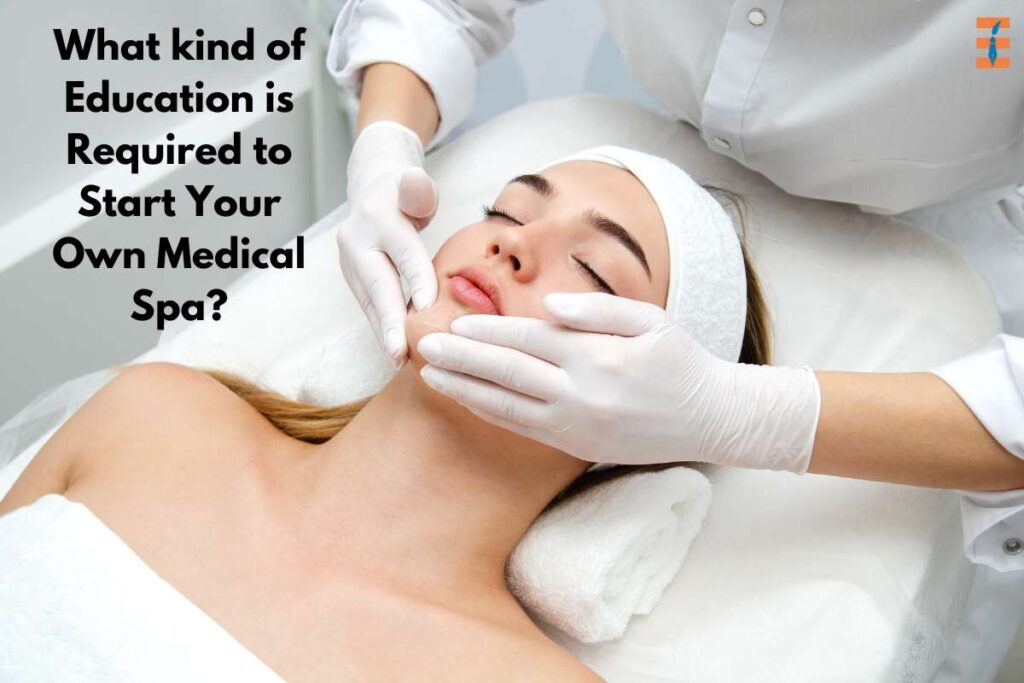Beauty and wellness centers are always making great businesses in the industry as they focus on lifestyle changes of the person. Their establishments offer an uncommon blend of traditional medical spa services and treatments. It provides clients with non-invasive cosmetic procedures that venture into the medical spa. There are various aspects of learning and educating medical spas to ensure successful and safe ventures. In this article, you will read about what kind of education is required for starting your own medical spa.
The Intersection of Beauty and Medicine
A medical spa is not your typical day spa; it bridges the gap between a traditional spa and a medical clinic. Medical spas offer a range of treatments such as laser hair removal, Botox injections, dermal fillers, chemical peels, microdermabrasion, and more. Given the nature of these procedures, a deep understanding of both aesthetics and medical science is required for starting your own medical spa.
Education Pathway To Starting Your Own Medical Spa:

1. Medical Background
While not every owner of a medical spa needs to be a licensed physician, having a medical background is immensely beneficial. Medical doctors (MDs), doctors of osteopathic medicine (DOs), and nurse practitioners (NPs) have the necessary medical knowledge to perform certain procedures and oversee the practice. Having a medical professional on staff can also enhance the credibility and safety of your medical spa.
2. Aesthetician or Cosmetology License
To provide non-medical spa services such as facials, massages, and body treatments, it’s often required to hold an aesthetician or cosmetology license. These licenses are typically obtained through accredited beauty schools and involve completing a specified number of training hours and passing a licensing exam.
3. Advanced Certifications
For more complex procedures like laser treatments and injectables, additional certifications may be necessary. Organizations like the American Board of Medical Specialties (ABMS) and the American Board of Cosmetic Surgery (ABCS) offer certifications in specific aesthetic procedures. These certifications demonstrate your expertise and commitment to safety and quality.
4. Business Management and Marketing
While not directly related to medical procedures, a strong foundation in business management and marketing also helps in starting your own medical spa. Consider taking courses or workshops that cover topics such as business planning, marketing strategies, customer service, and legal regulations.
5. Staying Current and Adapting

The field of aesthetics is constantly evolving with new technologies, treatments, and techniques emerging regularly. To keep your medical spa competitive and relevant, a commitment to continuous learning is essential. This involves attending workshops, conferences, and seminars to stay up-to-date with the latest advancements in both medical and aesthetic practices.
6. Ethical and Legal Considerations
Starting your own medical spa requires a thorough understanding of the ethical and legal implications associated with medical procedures. Make sure you comply with all local, state, and federal regulations related to licensing, health, and safety, patient privacy (HIPAA compliance), and medical supervision.
7. Collaboration and Team Building
Creating a well-rounded team is important to starting your own medical spa. This team might include medical professionals, aestheticians, nurses, administrative staff, and marketing experts. Each member brings a unique skill set that contributes to the overall functioning of the spa. Collaboration and effective communication among team members is vital for providing excellent client experiences and maintaining a safe environment.
In recent years, the beauty and wellness industry has witnessed a significant rise in the popularity of medical spas, also known as medspas. These establishments offer a unique blend of traditional spa services and medical treatments, providing clients with non-invasive cosmetic procedures and rejuvenating therapies. If you’re considering starting your medical spa, it’s essential to understand the educational requirements and expertise needed to ensure a successful and safe venture.
Importance of Education in Medical Spa
Education is extremely important when it comes to starting your medical spa. A medical spa combines traditional spa treatments with medical procedures that are typically performed under the supervision of licensed medical professionals. Due to the integration of medical procedures, a solid educational foundation is crucial for several reasons:
1. Regulations and Legal Compliance
Medical spas operate in a highly regulated environment, as they involve medical procedures that impact the health and safety of clients. You need a strong understanding of the regulations and licensing requirements in your jurisdiction to ensure compliance. This often includes ensuring that the procedures are performed by appropriately licensed medical professionals.
2. Client Safety and Care
Medical procedures, even minimally invasive ones, carry inherent risks. Proper education ensures that the treatments are performed safely and effectively, minimizing the risks to clients. Knowledge of anatomy, physiology, and potential complications is essential to provide the highest standard of care.
3. Quality of Service

Clients expect professional and effective treatments at a medical spa. Education equips your staff with the knowledge and skills needed to deliver top-notch services, enhancing the reputation of your spa and building client trust.
4. Treatment Selection and Customization
Different clients have different needs and skin types. Education allows your staff to recommend and customize treatments that best suit individual clients, ensuring optimal results and client satisfaction.
5. Emerging Trends and Technologies
The field of aesthetics and cosmetic procedures is rapidly evolving. Staying up-to-date with the latest trends, technologies, and treatment options is essential for remaining competitive and offering cutting-edge services.
6. Building Credibility
Education lends credibility to your medical spa. When clients know that your staff is well-educated and knowledgeable about the treatments they’re receiving, they are more likely to trust your services.
7. Medical Ethics and Communication
Medical spas need to maintain high ethical standards, especially when marketing and discussing treatments with clients. Proper education ensures that your staff can communicate transparently about the benefits, risks, and expected outcomes of treatments.
8. Collaboration with Medical Professionals
Collaboration between licensed medical professionals and non-medical spa staff is common in medical spas. Education helps bridge the gap between these two groups, promoting effective teamwork and communication.
9. Emergency Preparedness
While rare, complications can arise during procedures. Education prepares your staff to handle emergencies effectively, potentially saving lives or minimizing harm.
Conclusion
Starting your medical spa could be problematic during its initial days and require medical knowledge, expertise in aesthetics, and adherence to legal and ethical standards. It could be a fundamental step in your career that brings creativity and credibility at the same time. You have to stay updated with the changing and evolving trends concerning diseases and alternate medicinal therapies. We hope you enjoyed reading our article and it helped you to gain a critical perspective to focus on patient safety and the combination of beauty and wellness.
Also Read: Reasons Why It Is Worth Giving Self-employment A Shot

